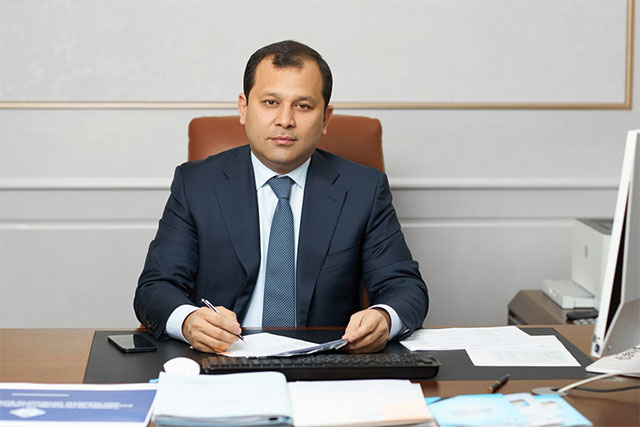
Davron Vakhabov: New Tax Measure Will Boost Transparency and Accelerate Farming Development
Davron Vakhabov: New Tax Measure Will Boost Transparency and Accelerate Farming Development
Tashkent, Uzbekistan (UzDaily.com) — The introduction of a zero-value added tax (VAT) rate for agricultural producers, announced by President Shavkat Mirziyoyev, is set to become a turning point for the country’s agrarian sector. This view was expressed in an interview with “Uzbekistan 24” by Davron Vakhabov, Chairman of the Chamber of Commerce and Industry (CCI) of Uzbekistan, calling the decision “historic.”
According to Vakhabov, the new measure creates conditions for transparent and efficient operations for farmers and processors. “This decision is extremely important for all business entities, especially those involved in growing, processing, selling on the domestic market, and exporting fruits and vegetables. It will deliver tangible results and substantial benefits,” he emphasized.
The CCI head noted that the zero VAT rate will encourage farmers to switch to cashless transactions, fostering a transparent turnover system. He cited an example of a farm owning 304 hectares but declaring only 12 tons of rice, saying such situations will no longer be possible: “The President has created conditions for entrepreneurs to operate openly. Those who continue to conduct business ‘in the dark’ will expose themselves to serious risks.”
Vakhabov pointed out that after the abolition of the 12% VAT, farmers and dehkan households will be motivated to plant additional crops on previously underutilized land. Previously, the inability to reclaim VAT on fertilizers and seeds forced many to operate in cash, avoiding taxation.
He also highlighted the significant potential of personal subsidiary plots: about 90% of the country’s cattle and 57% of vegetables are produced there. “Now, a unified industrialized chain is being established between household and dehkan farms. This will increase the investment attractiveness of the agricultural sector five to six times, expand the range of products, and reduce imports,” he said.
According to Vakhabov, apples are still being imported, including from Iran, despite the possibility of domestic cultivation. “If dehkan farmers see the benefit, they will actively plant such crops themselves,” he noted.
He emphasized that the CCI, the State Tax Committee, and the Ministry of Agriculture will carry out explanatory work among farmers and entrepreneurs. “By the President’s order, we will report monthly on which sectors benefit from the zero VAT rate, which agricultural products are involved, and what results producers and processors achieve,” the CCI head said.
“For the first time in 34 years, agriculture is being given such a large-scale opportunity,” Vakhabov concluded.
As a reminder, starting January 1, 2026, the VAT rate will be reduced to zero for the sale by farmers and dehkan households of fruits, vegetables, meat, milk, eggs, and other agricultural products, excluding cotton and grain. According to the Ministry of Agriculture and the State Tax Committee, the benefit will cover nearly half of all agricultural producers and save businesses up to 1 trillion soums annually.